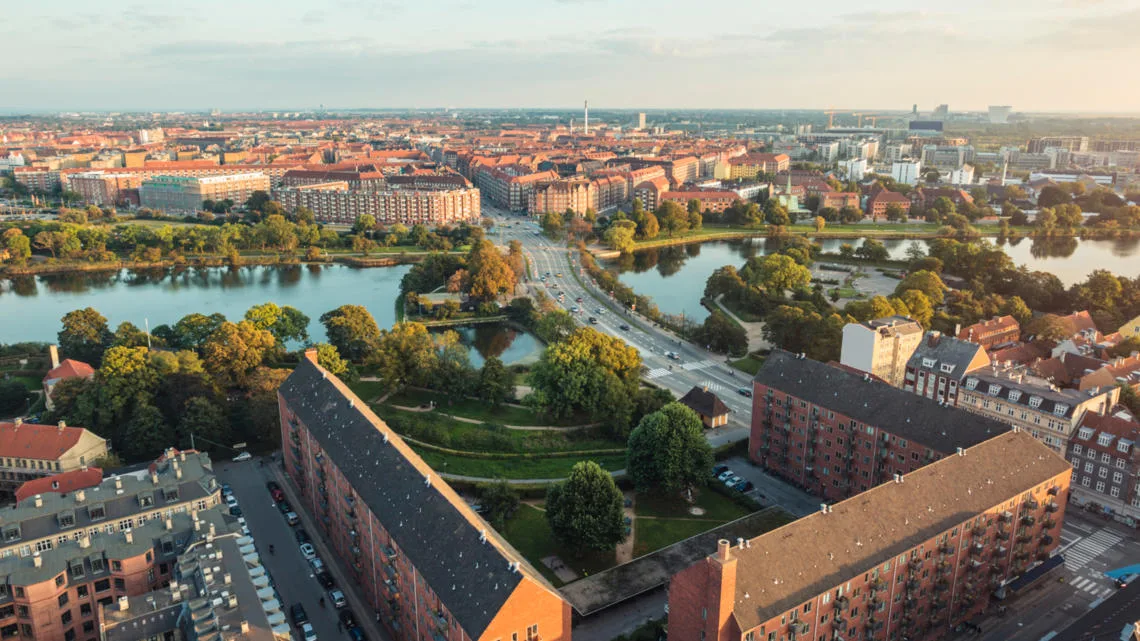Authors
WBCSD Communications
The Global Alliance for Buildings and Construction (GlobalABC) brings together governments, experts, businesses and NGOs to reduce emissions and increase resilience in the built environment. As co-chairs of the GlobalABC Steering Committee, WBCSD joined their annual General Assembly to discuss critical decarbonization measures ahead of COP27.
On 7-9 March 2022, the Global Alliance for Buildings and Construction (GlobalABC) held its annual General Assembly in Nice, France, hosted by the French government and ADEME as an official side event of the French EU Presidency.
At the Assembly, WBCSD, represented by Roland Hunziker, Director, Built Environment, was re-elected as co-chair of the GlobalABC Steering Committee for two more years, alongside Regis Meyer and Yves-Laurent Sapoval of the French Ministry of Ecological and Inclusive Transition.
Representing the voice of business, WBCSD will continue leading market transformation initiatives within GlobalABC. The objective is to create lasting change in market behavior by removing existing barriers and identifying leverage points that will accelerate the transition to a net-zero built environment.
Company leadership and collaboration along the value chain
WBCSD’s Executive Vice President Diane Holdorf addressed the High-Level Segment of GlobalABC’s General Assembly with a contribution stressing the importance of a common vision and deep collaboration between all stakeholders to transform the market.
Diane acknowledged that the full decarbonization of the built environment would require all companies to work towards the same objective. Leading companies have set science-based targets that bring them in line with keeping global warming within the limits identified by the Paris Agreement.
To achieve their own targets, these companies need to collaborate with others along the value chain, as one company’s Scope 3 emissions are another company’s Scope 1 or 2 emissions. A critical factor is that demand-side actors – those investing in, developing, owning and occupying buildings – set clear carbon performance requirements, as that will align the whole value chain to deliver.
Policymakers stepping up climate action
The Assembly discussed how to engage countries to take ambitious action towards building decarbonization and resilience. The 26th UNFCCC Conference of the Parties (COP26) in Glasgow placed strong emphasis on the built environment, with a dedicated “Cities, Regions and Built Environment Day” and a combined “Business & Buildings Pavilion” for the full duration of the COP. The momentum generated at COP26 across all stakeholder groups, including business, finance, cities and governments, sets a solid foundation for further ambition and action in the lead-up to the 27th UNFCCC Conference of the Parties (COP27) in Sharm El-Sheikh.
The High-Level Segment also included interventions by representatives from Denmark, France, Morocco, AFD, as well as from Dr. Mahmoud Mohieldin, the High-Level Climate Champion of Egypt for COP27. They underlined the need for robust and ambitious country action, recognizing the need for rapid building decarbonization by 2050, and the need for collaboration between countries of different regions and state and non-state actors. New national policies in France and Denmark include compulsory greenhouse gas (GHG) emission thresholds based on life-cycle assessment, taking into account emissions related to energy consumption as well as the carbon footprint of building materials and equipment. These thresholds will be strengthened over time.
Need for clear and strong signals from governments
Companies operate under the laws and regulations of national, regional and local governments, and public stakeholders represent key demand-side players. It is important that governments lead by example and put in place regulation and procurement procedures that favor low-carbon solutions, while ensuring a level-playing field for all solutions to play a role in the transition. The policies and regulations different countries adopt can vary quite substantially, which means companies must work with different definitions, methods and requirements. This makes it difficult to scale investments into lower carbon solutions along the value chain.
WBCSD advocates for all stakeholders to adopt a clear definition of what a net-zero building means – considering the whole life-cycle carbon emissions – to use consistent methodologies, share data and set performance and procurement requirements based on a full life-cycle approach.
Next steps: pulling the levers for market transformation
WBCSD has been leading work under the GlobalABC’s Work Area 3 on defining what it will take to transform the built environment towards net zero. As WBCSD outlined at COP26, all actors from business, finance, policy and science need to work together to advance key market transformation levers based on two underlying enablers:
- A shared understanding of the importance of the built environment for climate mitigation and a common vision for its urgent decarbonization as a system;
- The importance of radical and deep collaboration across all stakeholders.
The levers are:
- Adopt life-cycle thinking and Whole-Life Carbon Assessment across the full value chain, and align key indicators, metrics and targets accordingly
- Integrate the carbon cost and reflect it in the price of products and services throughout the value chain, including in procurement and taxonomy
- Transform the supply and demand dynamics to incentivize low-carbon solutions based on the Whole-Life Carbon approach
The built environment represents 40% of global carbon emissions. We need to halve emissions by 2030 and reach net-zero across the full life cycle by 2050. This is possible if we overcome the fragmentation of this system and engage in radical and deep collaboration towards the common goal.
WBCSD brings together leading global businesses along the full value chain to accelerate the system transformations needed for a net-zero, nature-positive and more equitable future. With GlobalABC as an essential platform for cross-sector dialogues, WBCSD will continue to support policymakers toward building decarbonization and resilience, and we call for close involvement of the private sector to support countries’ roadmaps and action plans.
WBCSD news articles and insights may be republished in accordance with the Creative Commons Attribution-NonCommercial-NoDerivatives 4.0 International Public License, and in accordance with our Privacy Policy. All Content must be featured with due credits.
Outline
Related
Content

Building a global action agenda for built environment market transformation
5 October, 2023

Cutting through the complexity – guidance for business to accelerate action and accountability in support of nature-positive outcomes
12 September, 2023

Every sector must play their part in contributing towards a nature-positive future. Here’s how
12 September, 2023

